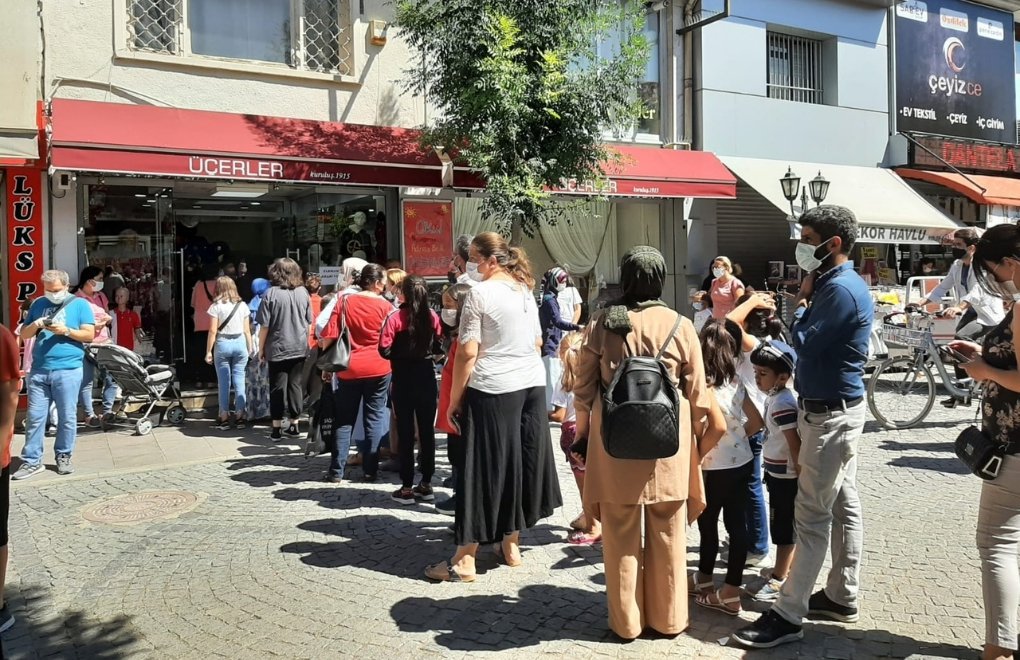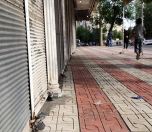MAIN OPPOSITION CHP
‘21-percent growth has apparently not affected citizens on back-to-school shopping’

* Photo: CHP Press
Click to read the article in Turkish
On the first day of in-class education in Turkey yesterday (September 6), main opposition Republican People's Party (CHP) Eskişehir MP Utku Çakırözer and Niğde MP Ömer Fethi Gürer visited the shops in their electoral districts and listened to the citizens' requests and complaints.
Talking to the families who went back-to-school shopping in Eskişehir's Taşbaşı and Yunus Emre Bazaar, CHP's Çakırözer said:
"Only the school uniform of a student costs as much as 450 lira. Notebooks, pencils, books, school bags, shoes are not included in this price! They talk about a 21-percent growth. This growth has apparently not affected bazaars and pockets of citizens who go back-to-school shopping. State support is indispensable for the educational costs of low-income families."
'Prices have increased by 100 percent'
Sharing further details about the prices, Çakırözer noted that "while a back-to-school shopping, including trousers, short- and long-sleeved shirts, cost 125-200 lira in 2019, it is now 300-450 lira in 2021."
Elif Durgun, a citizen going shopping with her daughter, also said, "It costs 90 lira when we buy one short-sleeved and one long-sleeved shirt. A pen cost one lira when my daughter started school. There is now no pen that costs less than 2.5 lira. There is a 100-percent increase."
'Price increases have affected the costs'
İsmail Çetinkaya, a citizen who sells school uniforms, said:
"In the past years, people could buy clothes without any reservations. If the owner of the textile workshop that we work with used to pay 5 thousand lira for the electricity bill, she now pays 20 thousand lira. The price increases introduced to threads, fabrics and dyes and the insurance expenses all affect the costs. A product that used to be tailored for 5 lira is now tailored for 12 lira. They now thank us for giving them a discount of 3 lira."
'Citizens are in financial difficulties'
Visiting the villages and towns in Niğde, CHP's Ömer Fethi Gürer also said that citizens are in serious financial difficulties, as is also the case in city and district centers. Voicing the complaints of farmers, he underlined that "the price increases introduced to electricity, diesel fuel, fertilizers and seeds have made it impossible for farmers to continue doing farming."
"Our shopkeepers say that they cannot sell anything as citizens no longer have any purchasing power," said Gürer, noting, "Citizens say that they are even having difficulty meeting the educational needs of their children. The government must definitely listen to the villagers' voices." (DŞ/SD)




